Blockchain technology has been a major game-changer for the gaming industry. It has enabled developers to create games that are more secure, transparent, and immutable than ever before. This guide will provide an in-depth look at blockchain game development and its numerous benefits. We’ll explore the use cases of blockchain technology, the different types of blockchain games available, and how developers can leverage the power of this revolutionary technology to create innovative games that offer players unprecedented levels of security and trustworthiness.
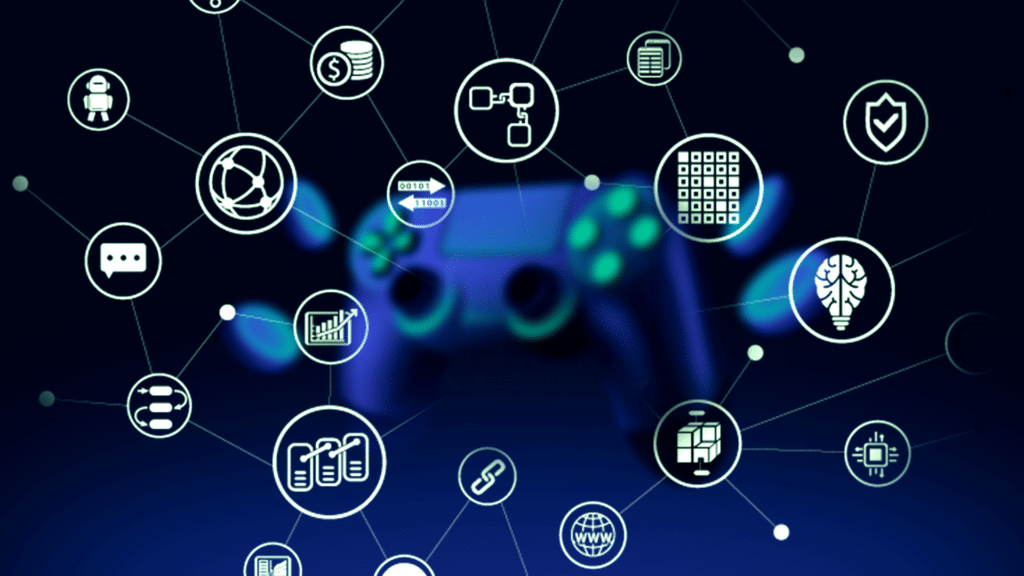
An In-depth Guide to Blockchain Game Development and its Benefits
Blockchain game development refers to the creation of video games that leverage the features of blockchain technology. In these games, assets and in-game items are stored on a decentralized ledger, making them secure and tamper-proof. This allows players to truly own their virtual assets, as they are recorded on the blockchain, and can be traded or sold outside of the game.
Introduction: What is Blockchain Game Development and How Does it Work?
Blockchain game development works by utilizing the features of blockchain technology to create decentralized games. In these games, all assets, items, and transactions are recorded on a decentralized ledger (i.e., the blockchain), allowing players to truly own their virtual assets. Here is a general overview of how blockchain game development works:
- Asset creation: The game developer creates virtual assets, such as in-game items, and assigns each asset a unique digital identifier. These assets are then recorded on the blockchain, making them secure and tamper-proof.
- Wallet integration: Each player is given a digital wallet, which allows them to store and manage their virtual assets. The wallet is linked to the player’s unique identity on the blockchain, and it is used to keep track of all in-game transactions.
- In-game transactions: Players can purchase, trade, or earn virtual assets within the game. When a transaction takes place, it is recorded on the blockchain, and the relevant information, such as the type of asset, the amount, and the players involved, is stored on the ledger.
- Verification: The transactions are verified and processed by a network of nodes, which are computers that are connected to the blockchain. This ensures that the information recorded on the blockchain is accurate and secure.
- Asset ownership: Because the assets are recorded on the blockchain, players have true ownership of their virtual assets, and they can trade or sell them outside of the game.
Overall, blockchain game development works by using blockchain technology to create secure and transparent in-game transactions, allowing players to truly own their virtual assets. This opens up new possibilities for game developers, such as the creation of complex in-game economies and cross-game compatibility.
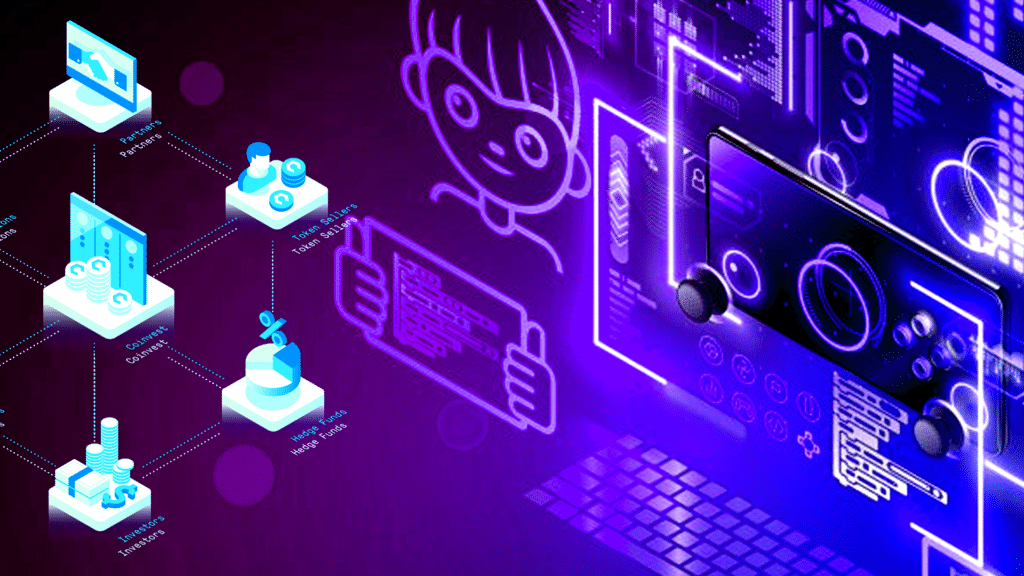
Game development on blockchain offers several benefits, such as increased security and player ownership, the ability to create complex in-game economies, and cross-game compatibility. Game developers can also use blockchain technology to create new business models, such as the selling of virtual assets for real-world currency.
Game development on blockchain is a new and exciting field that offers new opportunities for game developers and players. It has the potential to revolutionize the gaming industry and create new possibilities for player ownership, complex in-game economies, and cross-game compatibility.
What is Decentralized Gaming Platform?
A decentralized gaming platform is a gaming platform that utilizes blockchain technology to create decentralized games. In these games, assets and in-game items are stored on a decentralized ledger (i.e., the blockchain), making them secure and tamper-proof. This allows players to truly own their virtual assets, as they are recorded on the blockchain, and can be traded or sold outside of the game.
A decentralized gaming platform operates on a peer-to-peer network, where transactions are processed and verified by a network of nodes, rather than relying on a central authority or server. This provides a high level of security and transparency, as all transactions are recorded on the blockchain and are publicly verifiable.
Decentralized gaming platforms have the potential to revolutionize the gaming industry by providing new opportunities for player ownership, creating complex in-game economies, and enabling cross-game compatibility. They are also more resistant to censorship, as there is no central authority that can control or manipulate the data stored on the blockchain.
Overall, a decentralized gaming platform is a gaming platform that leverages the features of blockchain technology to create secure, transparent, and decentralized games, allowing players to truly own their virtual assets.
Blockchain Gaming Industry
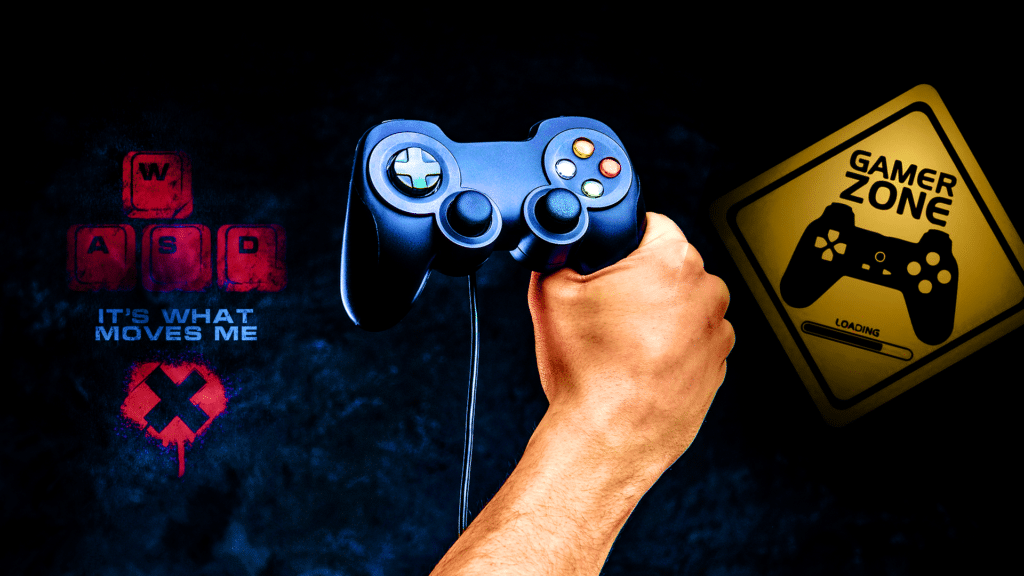
The blockchain gaming industry is a rapidly growing sector that leverages the features of blockchain technology to create decentralized games. In these games, assets and in-game items are stored on a decentralized ledger (i.e., the blockchain), making them secure and tamper-proof. This allows players to truly own their virtual assets, as they are recorded on the blockchain, and can be traded or sold outside of the game.
The blockchain gaming industry has seen significant growth in recent years, driven by the increasing popularity of blockchain technology and the growth of the gaming market. This has led to a proliferation of new blockchain-based games, as well as the development of decentralized gaming platforms and marketplaces.
One of the main benefits of the blockchain gaming industry is that it provides players with true ownership of their virtual assets, as they are recorded on the blockchain and can be traded or sold outside of the game. This has led to the creation of complex in-game economies and the emergence of new business models, such as the selling of virtual assets for real-world currency.
The blockchain gaming industry is still in its early stages, and there are a number of challenges that need to be overcome, such as scalability, user adoption, and regulatory challenges. However, it is clear that blockchain gaming has the potential to revolutionize the gaming industry and create new opportunities for game developers and players alike.
Overall, the blockchain gaming industry is an exciting and rapidly evolving sector that offers new possibilities for game developers and players, and has the potential to bring significant benefits to the gaming industry.
How to Leverage the Benefits of Blockchain in Game Development?
Some benefits of blockchain game development include:
- Decentralization: The decentralized nature of the blockchain provides a high level of security for in-game assets, as there is no central authority that can manipulate or control the data stored on the blockchain.
- True Ownership: Players can truly own their virtual assets, as they are recorded on the blockchain, and can be traded or sold outside of the game.
- In-game economies: With blockchain, game developers can create complex in-game economies that allow players to earn and spend virtual currency, which can then be exchanged for real-world currency.
- Immutable records: Blockchain technology provides a tamper-proof and permanent record of all transactions, ensuring that all in-game activities and purchases are recorded and verifiable.
- Cross-game compatibility: Because blockchain assets are stored on a decentralized ledger, they can be easily traded or transferred between different games, creating a shared economy across multiple game titles.
Overall, benefits of blockchain game development have the potential to revolutionize the gaming industry, by providing new opportunities for player ownership, creating complex in-game economies, and enabling cross-game compatibility.
Cryptocurrency Gaming Market
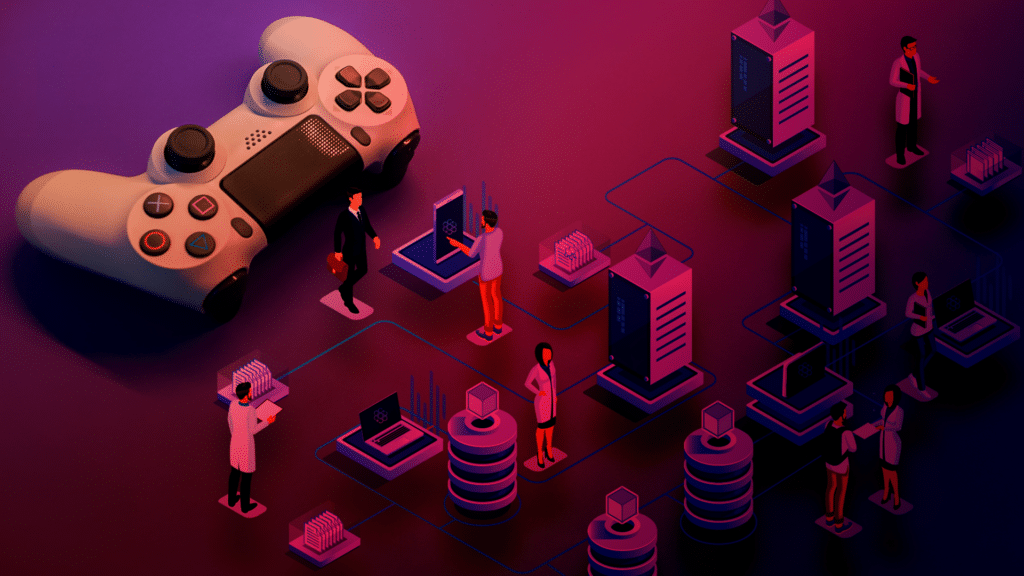
The cryptocurrency gaming market refers to the market for decentralized games that utilize cryptocurrency and blockchain technology. In these games, players can trade, buy, and sell virtual assets using cryptocurrency, creating complex in-game economies.
The cryptocurrency gaming market has seen significant growth in recent years, driven by the increasing popularity of cryptocurrency and the growth of the gaming market. This has led to a proliferation of new blockchain-based games, as well as the development of decentralized gaming platforms and marketplaces.
The cryptocurrency gaming market is still in its early stages, and there are a number of challenges that need to be overcome, such as scalability, user adoption, and regulatory challenges. However, it is clear that cryptocurrency gaming has the potential to revolutionize the gaming industry and create new opportunities for game developers and players alike.
Smart Contract Based Games
Smart contract based games are decentralized games that run on blockchain technology and utilize smart contracts to facilitate the management of in-game assets and transactions. A smart contract is a self-executing contract with the terms of the agreement directly written into code.
In smart contract based games, all transactions, such as the exchange of in-game items or the execution of game rules, are recorded on the blockchain and are processed automatically by the smart contract. This ensures that the transactions are secure, transparent, and tamper-proof.
The use of smart contracts in games also allows for more efficient game design and development, as it eliminates the need for a central authority to manage game assets and transactions. This can also lead to reduced development costs and increased game stability.
How to Create a Cryptocurrency Game?
Create a cryptocurrency game involves several steps, including the following:
- Concept development: Start by coming up with a unique and engaging game concept. Consider the game mechanics, the virtual assets and in-game items, and the overall player experience.
- Blockchain selection: Choose a blockchain platform to build your game on. Consider factors such as transaction speed, security, and scalability. Popular blockchain platforms for gaming include Ethereum, EOS, and TRON.
- Smart contract development: Write the smart contract that will manage the game’s in-game assets and transactions. The smart contract should define the rules of the game and the behavior of the virtual assets.
- Game development: Develop the game using a suitable game engine. Consider factors such as cross-platform compatibility, ease of use, and community support.
- Integration with blockchain: Integrate the game with the blockchain platform and smart contract. This involves adding digital wallets for players and recording transactions on the blockchain.
- Game testing: Test the game to ensure that it is secure, stable, and bug-free. This should include both functional testing and security testing.
- Deployment: Deploy the game to the blockchain platform and make it available to players.
- Marketing and community building: Market the game to attract players and build a community. This can include advertising, social media marketing, and community-building initiatives.

Create a cryptocurrency game is a complex process that requires expertise in game development, blockchain technology, and smart contract development. It may be helpful to work with a team of experienced developers and designers to bring your game to life.
Create a cryptocurrency game is an exciting and challenging opportunity that offers the potential for significant rewards. However, it is important to approach game development with a clear understanding of the technology and the market, as well as a well-defined plan for success.
The Different Types of Games Built on the Blockchain
There are several types of games built on blockchain technology, including:
- Collectible games: In these games, players can collect unique virtual assets such as collectible cards or in-game items. The ownership of these assets is recorded on the blockchain and can be traded or sold for real-world currency.
- Trading card games: Trading card games are similar to collectible games, but with a focus on strategy and deck building. Players can collect, trade, and use virtual trading cards to compete against each other.
- Virtual world games: Virtual world games allow players to create and explore virtual environments, where they can interact with other players and trade virtual assets.
- Role-playing games (RPGs): RPGs allow players to assume the role of a character and progress through a story. In blockchain-based RPGs, players can own and trade virtual assets, such as weapons and equipment.
- Gambling games: Gambling games allow players to place bets and win or lose virtual assets based on the outcome of a game. In blockchain-based gambling games, the outcome is determined by a provably fair algorithm and recorded on the blockchain.
- Strategy games: Strategy games challenge players to use their strategic thinking to defeat opponents and progress through the game. In blockchain-based strategy games, players can own and trade virtual assets that give them an advantage in the game.
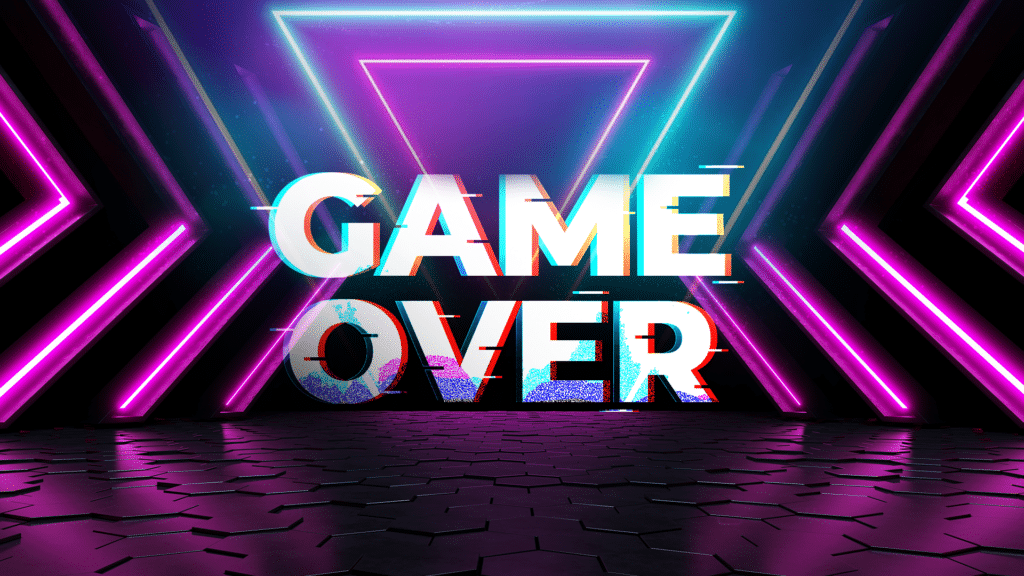
These are just a few examples of the types of games built on blockchain technology. The possibilities are limited only by the imagination of game developers and the capabilities of the technology.
Dapp Games List
Here is a popular dapp games list:
- Axie Infinity: A collectible and battle game where players can breed, raise, and battle creatures called Axies.
- CryptoKitties: A collectible game where players can breed, trade, and show digital cats.
- Decentraland: A virtual world game where players can create and explore virtual environments, participate in games and events, and trade virtual assets.
- Splinterlands: A collectible card game where players can collect, trade, and battle with digital monster cards.
- The Sandbox: A virtual world game where players can create, trade, and monetize their own gaming experiences.
- SkyWeaver: A trading card game where players can collect, trade, and battle with digital cards.
- F1 Delta Time: A racing game where players can buy, sell, and race virtual Formula One cars.
- EOS Knights: An RPG where players can explore a fantasy world, battle monsters, and trade virtual assets.
- Dark Forest: A strategy game where players compete against each other to conquer the galaxy.
These games (dapp mobile games) can be played on both iOS and Android devices and are available on various blockchain platforms such as Ethereum, EOS, and TRON. The dApp gaming market is rapidly growing, and new games are being developed and released all the time, so the list of dapp mobile games is likely to expand in the future.
What are the Best Practices for Developing Games on the Blockchain?

Here are some best practices for developing blockchain-based games:
- Understanding the technology: It is important to have a good understanding of blockchain technology and how it works. Developers should familiarize themselves with smart contract development and the specific blockchain platform they plan to use for their game.
- Building a community: Building a community of players and supporters is critical for the success of any blockchain-based game. This can be done through social media, forums, and other online communities, as well as through in-game events and promotions.
- Creating a compelling game: Despite the advantages that blockchain technology can bring to the gaming industry, the most important factor for success is still the quality of the game itself. The game should be fun, engaging, and offer players unique and meaningful experiences.
- Providing a user-friendly experience: A blockchain-based game should be easy to use and accessible to a wide range of players, regardless of their technical proficiency. This includes providing clear and concise instructions and making sure that the game is fully optimized for mobile devices.
- Securing player assets: Player assets are stored on the blockchain and are often valuable, so it is important to ensure that they are secure. This includes using secure smart contracts and implementing proper security protocols to prevent hacking and theft.
- Balancing the economy: In-game economies can be complex and require careful balancing to ensure that they are fair and sustainable. This includes setting the right prices for in-game items, ensuring that there are enough resources available for all players, and avoiding inflation.
- Staying up-to-date with industry developments: The blockchain gaming industry is rapidly evolving, and it is important for developers to stay up-to-date with the latest trends and developments. This includes staying informed about new technology, game design trends, and industry best practices.
By following these best practices for developing blockchain-based games, developers can ensure that their blockchain-based game is successful, provides a great experience for players, and makes the most of the benefits of blockchain technology.
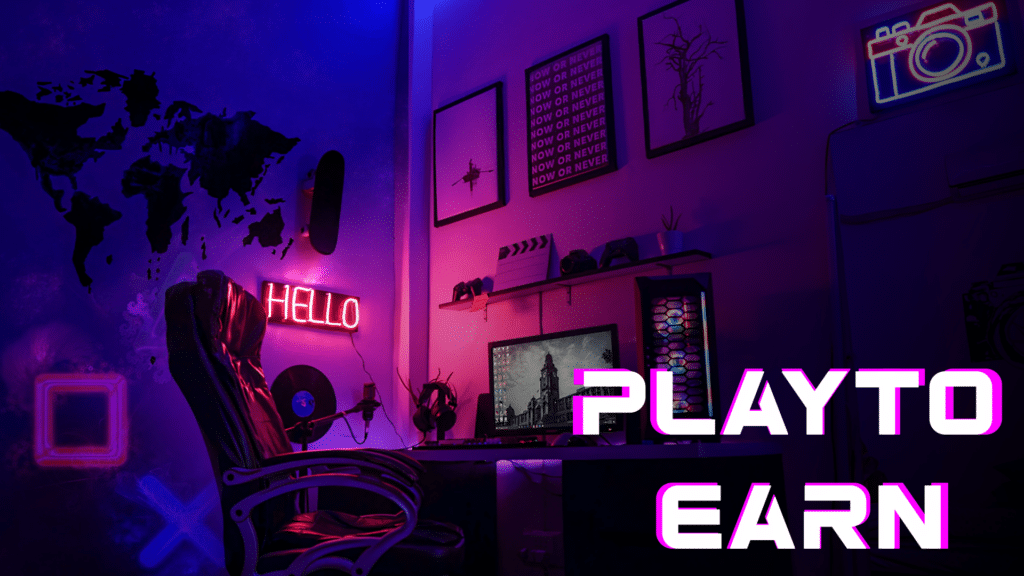
How to Build a Decentralized Game Application
Here is the answer of how to build a decentralized game application
- Conceptualization: Start by defining the game concept, including the game mechanics, objectives, and target audience.
- Research: Research the blockchain platforms that are available and determine which one is the best fit for your game. Consider factors such as transaction speed, cost, scalability, and developer support.
- Smart Contract Development: Write and deploy smart contracts on the blockchain to manage game logic and transactions.
- Front-end Development: Develop the user interface and user experience for the game, including graphics, animations, and sound effects.
- Integration: Integrate the smart contracts with the front-end to connect the game logic with the user interface.
- Testing: Thoroughly test the game to ensure that it is functional and bug-free.
- Launch: Launch the game on the blockchain and make it available to players.
- Maintenance: Continuously monitor and maintain the game, including making updates and fixing bugs as needed.
Building a decentralized game application can be challenging, especially for developers who are new to blockchain technology. It is important to have a strong understanding of smart contract development, and to work with a team that has experience in both blockchain and game development. Additionally, it is important to stay up-to-date with the latest trends and developments in the blockchain gaming industry, and to continuously innovate to provide the best possible experience for players.
The Challenges & Opportunities in Building Decentralized Games
Building decentralized games can be challenging, but it also presents many exciting opportunities for game developers to innovate and create new and exciting gaming experiences for players. By leveraging the strengths of blockchain technology, developers can create games that are more accessible, secure, and engaging, and that provide new opportunities for players to own and control their assets.
Challenges in Building Dgames
Here is a list of challenges in building dgames:
- Technical Complexity: Building decentralized games requires a strong understanding of blockchain technology and smart contract development. This can be challenging for developers who are new to the field, and can require a significant investment in time and resources.
- Scalability: Decentralized games run on a blockchain, which can be slow and limited in terms of transaction speed. This can be a challenge for games that require real-time interactions and high volumes of transactions.
- User Adoption: Decentralized games are still a relatively new concept, and it can be challenging to convince players to adopt a new technology. Developers need to create compelling games that provide a great user experience, and that are accessible to a wide range of players.
- Security: Decentralized games store player assets on the blockchain, which can be vulnerable to hacking and theft. It is important to ensure that the game is secure, and that smart contracts are written and deployed in a way that minimizes the risk of security breaches.
Opportunities in Building Dgames

Here is a list of opportunities in building dgames:
- Ownership of Assets: Decentralized games allow players to truly own their assets, as they are stored on the blockchain. This creates new opportunities for players to trade, buy, and sell their assets, and can lead to a more dynamic and engaging in-game economy.
- New Business Models: Decentralized games offer new opportunities for game developers to monetize their games. For example, they can create games that reward players for participating in the game’s economy, or that allow players to earn money by completing in-game tasks.
- Accessibility: Decentralized games can be accessed by anyone with an internet connection, regardless of their location or device. This creates new opportunities for game developers to reach a global audience and to build games that are accessible to players around the world.
- Immutable Records: Decentralized games store game data and transactions on the blockchain, creating an immutable record that is tamper-proof. This provides new opportunities for game developers to create games that are transparent, fair, and trustworthy.
Conclusion: Start Exploring
Blockchain game development is a type of game development that leverages the features of blockchain technology to create decentralized games. In these games, assets and in-game items are stored on a decentralized ledger, making them secure and tamper-proof. This allows players to truly own their virtual assets, as they are recorded on the blockchain, and can be traded or sold outside of the game.
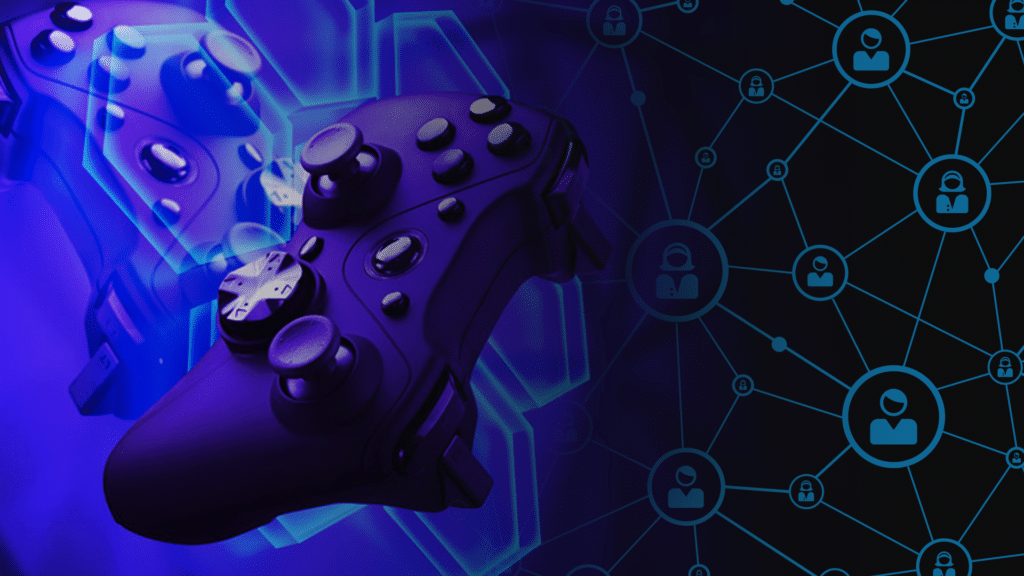
Blockchain game development offers several benefits, such as increased security and player ownership, the ability to create complex in-game economies, and cross-game compatibility. It is a relatively new field, but it has the potential to revolutionize the gaming industry and create new opportunities for game developers and players alike.

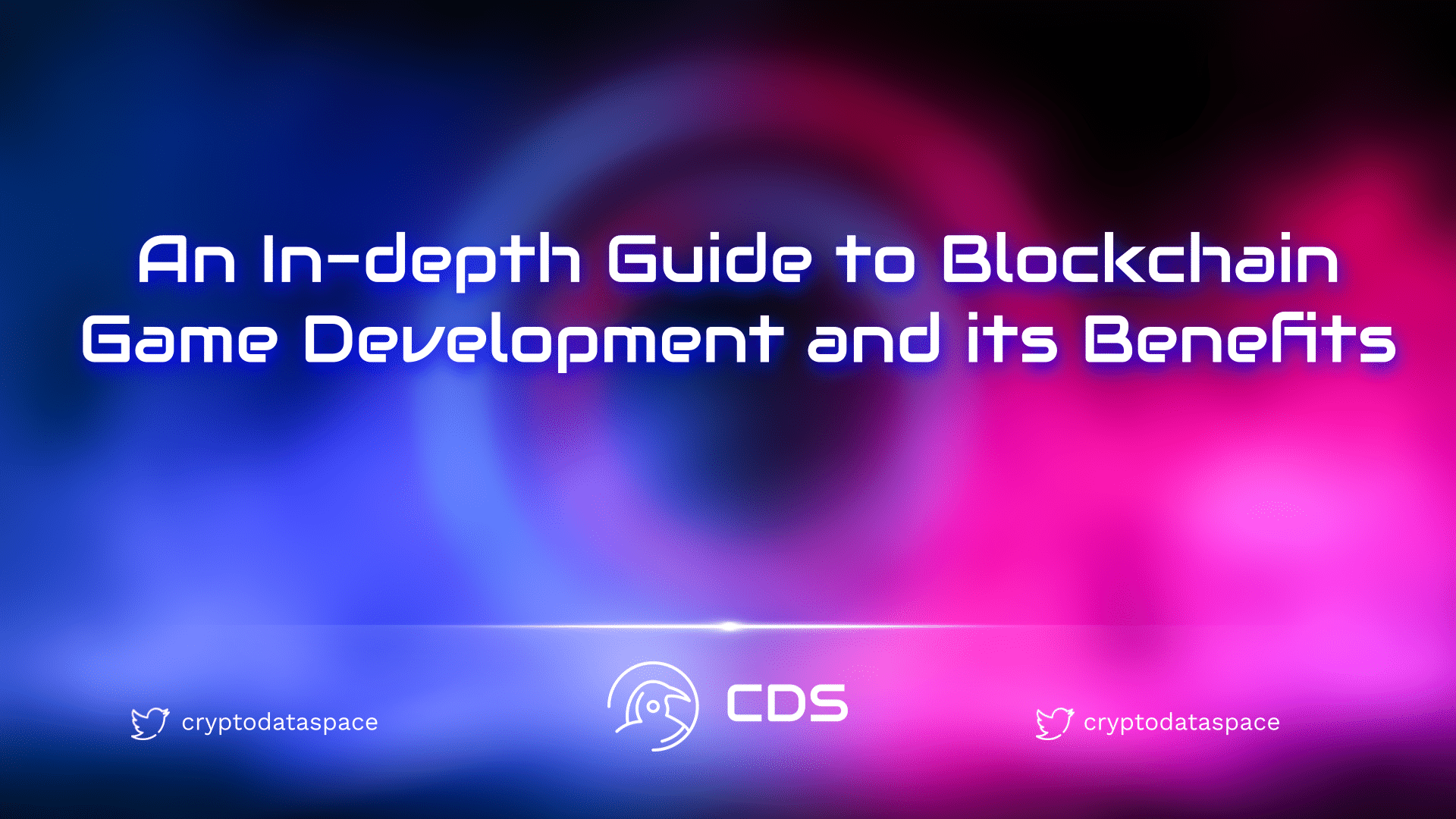













Leave a comment